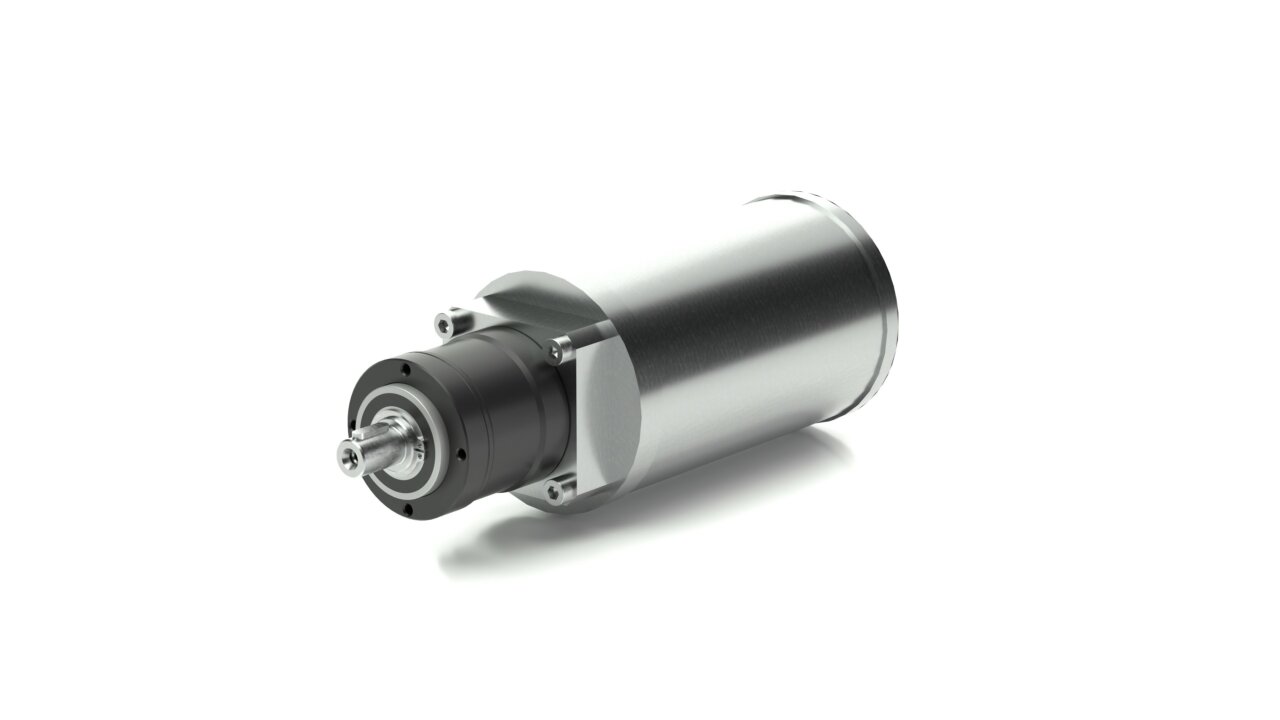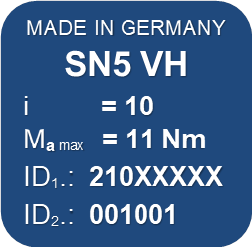Knowledge Center
Brushless DC gear motors
Questions about technology? Here are the solutions!
What are brushless DC motors?
Version: 22.11.2024
Advantages of brushless electric motors with worm, planetary, and spur gearboxes
Efficient, durable, and low-maintenance
Here you can learn all about our brushless electric motors combined with high-quality worm, planetary, and spur gearboxes. Brushless gear motors offer numerous advantages in terms of efficiency, durability, and low maintenance. Discover why these motors are the ideal solution for your specific needs in automation technology, robotics, and many other industries.
Brushless gear motors combine the benefits of a brushless electric motor with those of a powerful gearbox. Brushless motors are particularly maintenance-friendly and durable due to the absence of carbon brushes. They offer high efficiency as they operate without mechanical friction, which also minimizes energy consumption. When combined with a worm, planetary, or spur gearbox, these motors provide excellent performance and precise control for a wide range of applications.
The operating principle of brushless DC motors

Operating principle of brushless DC motors (BLDC motors)
Brushless DC motors operate with innovative technology that eliminates the need for traditional carbon brushes. As a result, they offer higher efficiency, less wear, and lower maintenance costs. But how exactly do they work? The operating principle of a brushless DC motor combines innovative technology with proven functionality. The precise control through electronic commutation and the low-maintenance design make BLDC motors the ideal choice for modern industrial applications and beyond.
Basic structure of a BLDC motor
A brushless DC motor consists of two main components: the rotor and the stator.
- Rotor: The rotor is equipped with permanent magnets and generates a constant magnetic field.
- Stator: The stator contains the windings that generate an electromagnetic field when current flows through them.
Since no carbon brushes are used, the control of the power supply is electronic, through a system known as commutation electronics. Other components include:
- Sensors: BLDC motors often use Hall sensors to detect the position of the rotor. This information is essential for the precise control of the rotating magnetic field in the stator. Alternatively, sensorless controllers can be used, which rely on mathematical models.
- Control electronics: The electronic commutation system adjusts the power supply to the stator windings based on the rotor position. This control system is the core of a BLDC motor, enabling its precise and efficient operation.
Electronic commutation instead of mechanical brushes
In contrast to conventional DC motors, in BLDC motors, an electronic circuit takes over the task of commutation, which is switching the direction of current in the windings.
Here’s how it works:
- Rotor position detection: Sensors (e.g., Hall sensors) detect the position of the rotor.
- Activation of the windings: The electronics control the stator windings to create a rotating magnetic field.
- Rotational movement: This magnetic field causes the rotor to move as the magnetic poles of the rotor and stator interact with each other.
- Continuous adjustment: The electronics continuously adjust the control of the windings to the current rotor position, ensuring smooth operation.
The result is a smooth and efficient rotational movement without the need for mechanical parts like carbon brushes.
Torque and speed control
The speed of a BLDC motor is controlled by the frequency of the electric current flowing through the windings. The faster the commutation occurs, the higher the speed. The torque is directly dependent on the current, allowing for precise control of the motor's power.
Types of BLDC motors
Brushless DC motors can be distinguished based on the arrangement of the windings and magnets:
Internal rotor
The rotor with the magnets is located inside the stator. This design is more compact and offers high torque density, making it ideal for applications with limited space.
Outer rotor
The rotor surrounds the stator. This design provides high stability and smooth operation, making it especially suitable for precise applications such as drones or camera stabilizers.
Advantages of brushless DC motors
Higher efficiency:
Electronic commutation minimizes energy losses as there is no mechanical friction from brushes.
Longer lifespan:
The absence of carbon brushes significantly reduces wear and extends the motor's lifespan.
Maintenance-free:
No brushes that need to be replaced make BLDC motors virtually maintenance-free.
Compact design:
Due to their high power density, BLDC motors can be built small and lightweight.
Precise control:
The electronic control enables precise regulation of speed, torque, and position.
Low noise levels:
BLDC motors operate more quietly than brushed models because there are no brush contacts.
Frequently asked questions
Brushless DC motors
#1 | What are brushless DC motors?
Brushless DC motors (BLDC motors) are an advanced alternative to traditional brushed DC motors. Their key advantage lies in the brushless design, where commutation – the reversal of current direction – is done electronically rather than mechanically. This eliminates the wear-prone brushes, which not only increases the lifespan but also significantly reduces maintenance efforts.
#2 | How do BLDC motors work?
A suitable circuit drives the three-phase winding in such a way that a rotating magnetic field is created. This magnetic field sets the permanent magnet rotor in motion. Due to their design, BLDC motors offer a control behavior similar to that of a conventional DC machine, but with higher efficiency and less maintenance effort.
#3 | What makes BLDC motors special?
BLDC stands for “brushless direct current” – brushless DC motors. Despite their name, they do not operate based on the principle of a traditional DC machine but are structurally similar to an alternating current synchronous motor. The key feature lies in their electronic commutation, which eliminates the need for wear-prone brushes, ensuring a long lifespan.
#4 | What advantages do BLDC motors offer for demanding applications?
These motors are characterized by exceptionally high energy efficiency, a compact design, and quiet operation. Thanks to precise control, they are ideal for demanding applications that require high dynamics, reliability, and precise motion control.
#5 | What challenges are there?
Control complexity:
Electronic commutation requires an advanced control system, which increases production costs. However, advancements in electronics have reduced the cost of controllers and simplified implementation.
Dependency on rare earth materials:
The permanent magnets in the rotor often contain materials like neodymium, whose availability and cost are subject to fluctuations. Recycling and alternative materials are promising solutions.
#6 | What drive variants does Ruhrgetriebe offer besides BLDC motors?
In addition to BLDC motors, our range also includes EL motors and other drive solutions. Our goal is to work with you to find the optimal solution for your specific requirements. Feel free to contact us for personalized advice on our products and their applications!
#7 | In which industries can Ruhrgetriebe's brushless DC motors be used?
Our brushless DC motors are suitable for a wide range of applications, including automation technology, medical technology, and other industries. Thanks to their durability, performance, and customized design, they are the ideal drive solution for various requirements.
Why Ruhrgetriebe?
“As a renowned manufacturer of gear motors, we have been developing and producing drive components for all industrial sectors since 1953. Always innovative, we continuously expand our portfolio to provide optimal, energy-efficient, and environmentally friendly solutions.”


